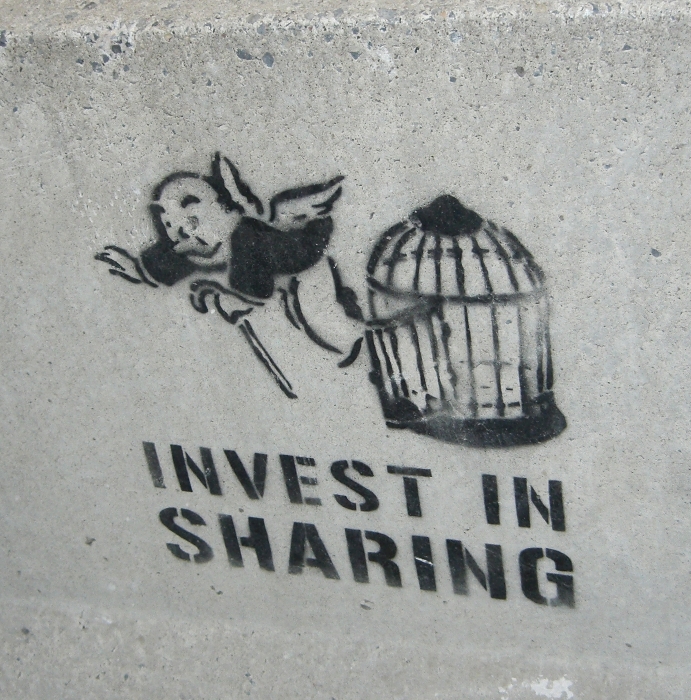
#GivingTuesday, #ShmivingTuesday
I have spent a lot of snark-energy lately on the various “Days” that invade our calendar. One might consider that unsurprising, knowing that I’m not a big holidays guy in general, but “Chilblains Awareness Day” and “Put the Toilet Seat Down Thursday” are things i can live without. That goes for broader “Days” as well, as the tradition “Black Friday” and more recent “Cyber Monday” (not to mention “Small Business Saturday”) followed Thanksgiving, giving way to “Giving Tuesday.” This one is problematic; how shall I waggle my brow at the #GivingTuesday hashtag on social media without looking like someone who hates kids with cancer/starving refugees/disabled students/chilblain sufferers? Because the point of awareness is not to throw your message into a day where everybody else in the world is doing the same thing. I’m not giving thousands of dollars (or more) to charity all in one day. It’s overwhemling, and I opted out of engaging. Besides, there is a better way to manage your own giving, such as setting up subscriptions to causes you believe in, or simply remembering meaningful events and fundraisers that people you know and love are involved in. Trying to be noisy on the same day as everyone else doesn’t cut it for charitable giving.
Bah Humbug.
Twitter Share Counts Gone: Infantile Ranting Commences
We all knew the day was coming; that day when Tweet counts stopped working on our sharing apps (like the one on this blog. That’s an inconvenience to “engagement counters,” but hardly the end of the world. Besides, Twitter itself refers to technical reasons for losing the count feature – perhaps not the best excuse ever, but a valid one.
While I would rather have counts to fool myself into thinking these blog posts are popular, it is now time to move on and measure actual impact of your content, through things like referral traffic, leads, sales and more, depending on your goals. Engagement and reach numbers are merely indicators, not the real result of your efforts. Relax, it will be fine.
The Problem with the “Sharing Economy”
Jeremiah Owyang, the analyst who some time back aligned himself full-time with the “collaborative economy,” recently posted the following:
What struck me about that statement was that to me it was not news. I’m doubt Jeremiah intended it as news, as he’s no naive dummy. People associate “sharing economy” with hot companies like airbnb, Uber and the like. The problem is that form the beginning, at least how I saw it, was that these businesses were built less on sharing than on disrupting an existing industry. There remains a possibility that these companies and those like them will either replace the legacy industries (like hotels and taxis) or be assimilated into them. What;s better about airbnb or Uber that the existing industries cannot co-opt or purchase outright? The above statement is not a rude awakening, unless people were oblivious to the obvious? Want a true sharing economy? Go to Craigs List. Otherwise, see what these new businesses are doing to change existing business models, rather than destroy them.
Waze Craze
Small pet peeve: time for me to share how I use navigation apps: straight-up google Maps navigation on my tablet, pure and simple. I tried Waze, but found the interface distracting and hard to get used to while I found that Google Maps has a more straightforward interface that looks like a traditional map – AND includes traffic information reported by Waze. Also- am I the only one who gets worried every time they see a friend Tweet that they “Helped nearby drivers by reporting a traffic jam/slowdown/speed trap/etc. on @waze?” see that it helps Waze awareness, but I don’t see how that helps anyone’s driving experience – and I’m still skeptical of the encouragement to drivers to actively use the app while driving to report traffic conditions (another aspect of the app though, while it makes allowances for voice controls and easy access to standard commands, still made me nervous when I thought about using it).
That was only 4
So here’s on more: quit it with the creepy, terrible or both “video” facebook profile pics. They give me motion sickness.
A note on Twitter share counts hysteria: true, share counts are a very raw metric that does not prove your content is moving to your higher level goals. However, if you don’t see that movement, the only way to investigate the reasons is to look at the raw data. So, ignoring share counts just because they are not business-level metric is shortsighted, at least. It’s like saying ‘lets just measure the income dollars’.
Btw, check-out the newsharecounts.com that can bring back share counts for those who are still interested in measuring them.
I get that we would rather have the share counts, and I hope they come back. They are not without value, but they are not the end game. Perhaps this “data diet” will force marketers to go on a “high protein” diet.